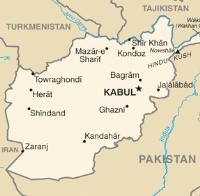TARIN KOWT, Afghanistan -- On June 15, a suicide bomber struck a Dutch army education delegation in the town of Tarin Kowt in Uruzgan province in southern Afghanistan, killing one Dutch soldier and 11 Afghan children. The blast was the opening salvo in a five-day battle pitting hundreds of Taliban fighters against the 3,000-strong Dutch-led Task Force Uruzgan and hundreds of Afghan police and militia. At stake was control of a key valley connecting Pakistan's Taliban bases to the opium production centers in Helmand province. In July 1995, a Dutch battalion assigned to protect Srebrenica -- a U.N.-declared "safe haven" in eastern Bosnia -- allegedly stood by as Bosnian Serb fighters murdered thousands of Bosnian Muslims. Though subsequent investigations cleared the Dutch soldiers of any active role in enabling the massacre, the Dutch military still had a reputation for squeamishness as it assumed control in Uruzgan last year. Indeed, the task force's stated strategy had been to avoid direct confrontation with the Taliban, instead pursuing a "hearts and minds" strategy focusing on education and economic redevelopment. "We're not here to fight the Taliban. We're here to make the Taliban irrelevant," Dutch Lt. Col. Hans van Griensven told his troops earlier this year, according to an April report in the New York Times.
<<ad>>
The Tarin Kowt battle represented the first major fighting for the Dutch army in decades. Since the end of the Cold War, the Netherlands' armed forces have seen steady cuts in its manpower rolls and combat equipment and increasing emphasis on reconstruction and international peacekeeping operations. This shift away from traditional warfighting has been marked by some tragic and embarrassing episodes.
Victory in Rare Dutch Army Fighting Comes as Government Reconsiders Afghan Mission

